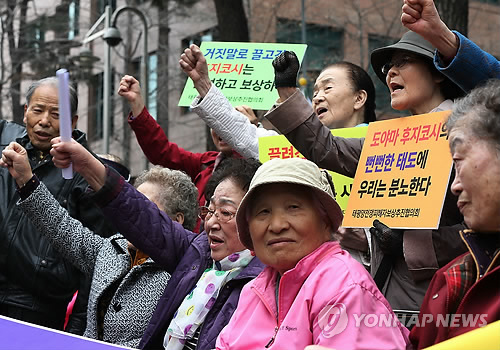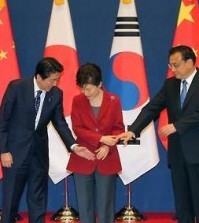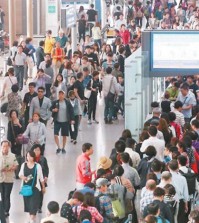- California Assembly OKs highest minimum wage in nation
- S. Korea unveils first graphic cigarette warnings
- US joins with South Korea, Japan in bid to deter North Korea
- LPGA golfer Chun In-gee finally back in action
- S. Korea won’t be top seed in final World Cup qualification round
- US men’s soccer misses 2nd straight Olympics
- US back on track in qualifying with 4-0 win over Guatemala
- High-intensity workout injuries spawn cottage industry
- CDC expands range of Zika mosquitoes into parts of Northeast
- Who knew? ‘The Walking Dead’ is helping families connect
Seoul confirms 2,091 more Koreans as victims of Japan’s forced labor

Victims of forced labor by Japanese companies during World War II stage a rally in front of the Japanese embassy in Seoul on March 25, 2014, demanding Japan apologize and compensate them. (Yonhap)
SEOUL (Yonhap) — An additional 2,091 South Koreans have been confirmed as victims of forced labor by imperial Japan who ruled the Korean Peninsula as a colony during the first half of the 20th century, the Seoul government said Thursday.
The new victims were discovered after new records were found kept at the South Korean Embassy in June, 2013. Out of the 5,157 names listed on the records, 2,091 were immediately confirmed as bona-fide victims of Japan’s forced labor.
The records were compiled in 1953 under the Rhee Syng-man administration following South Korea’s independence from Japan’s 1910-45 colonial rule.
The confirmation comes as some local labor victims are awaiting a court ruling in a landmark damage suit filed against some Japanese companies that were involved in the colonial-era forced labor.
Officials said a court decision in favor of the South Korean labor victims may trigger a flurry of economic and diplomatic issues to be settled between the neighbors.
The government estimates that up to 7,820,000 Koreans had been forced into hard labor under the brutal colonial rule of Japan. Only 600,000 so far have been officially recognized as labor victims entitled to state financial support.
Japan has long declared that all liabilities toward the South Korean government and individual victims were settled through the 1965 treaty between the two countries, which restored diplomatic ties. In the treaty, Japan provided a large sum of money to the South Korean government.















